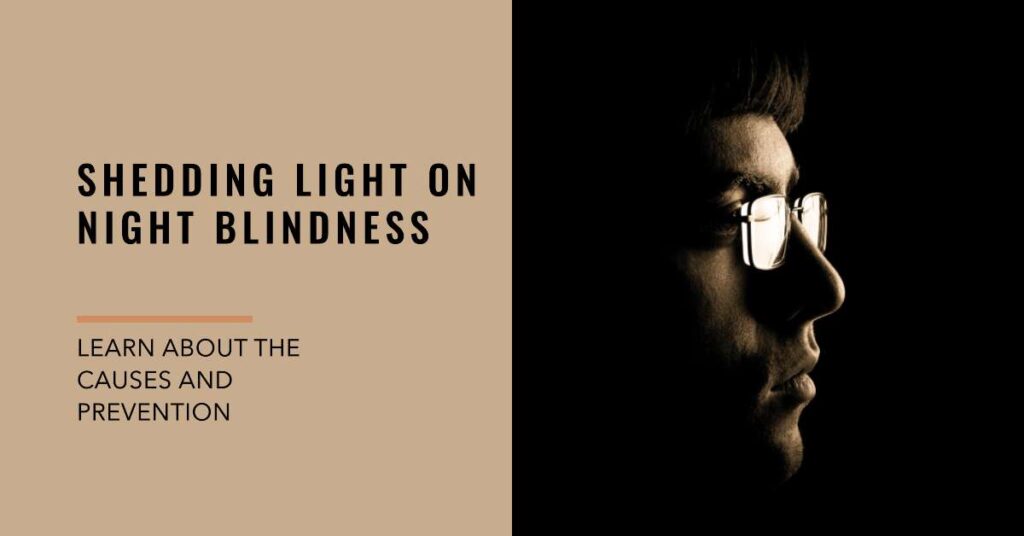
Night blindness, also known as nyctalopia, is caused due to Vitamin A deficiency, which impairs the eye’s ability to adjust to low-light situations. This essential vitamin helps to produce rhodopsin, a pigment present in the retina. Its shortage impairs vision in low-light conditions, resulting in the inability to see clearly at night.
Night blindness, also known as nyctalopia in science, occurs when a person has trouble seeing in low light or darkness. This illness is primarily caused by a lack of key important nutrients required for good vision.
Deficiency of Vitamin A:
A deficiency of vitamin A is usually connected with night blindness. This essential nutrient is important for sustaining healthy vision, especially in low-light circumstances. A lack of this vitamin can impair retinal function, making it difficult to see in low light.
Retinal Disorders:
The retina is a layer at the rear of the eye that contains rod cells that aid with low-light vision. Inadequate vitamin A levels impact these cells, resulting in impaired eyesight in dim light. Without enough vitamin A, the rods cannot adjust to the darkness.
Malnutrition with an Unhealthy Diet:
Night blindness is frequently caused by a diet deficient in vitamin A-rich foods such as leafy greens, carrots, eggs, and dairy products. Vitamin A insufficiency, and hence night blindness, can be more common in areas where access to a broad and healthy diet is limited.
Retinal Disorders:
The retina is a layer at the rear of the eye that contains rod cells that aid with low-light vision. Inadequate vitamin A levels impact these cells, resulting in impaired eyesight in dim light. Without enough vitamin A, the rods cannot adjust to the darkness.
Malnutrition with an Unhealthy Diet:
Night blindness is frequently caused by a diet deficient in vitamin A-rich foods such as leafy greens, carrots, eggs, and dairy products. Vitamin A insufficiency, and hence night blindness, can be more common in areas where access to a broad and healthy diet is limited.
Underlying Health Issues:
Certain medical problems, like vitamin A deficiency, might impair nutrient absorption. Celiac disease, Crohn’s disease, and pancreatic problems can impair the body’s capacity to absorb critical nutrients, resulting in deficits that may contribute to night blindness.
Finally, night blindness is caused mostly due to deficiency of vitamin A, which is essential for maintaining excellent eyesight, especially in low-light circumstances. A healthy diet high in vitamin A and other key nutrients is essential for avoiding this illness. Seeking medical assistance and including nutrient-rich foods in one’s diet can aid in the management and prevention of night blindness caused by deficiencies.